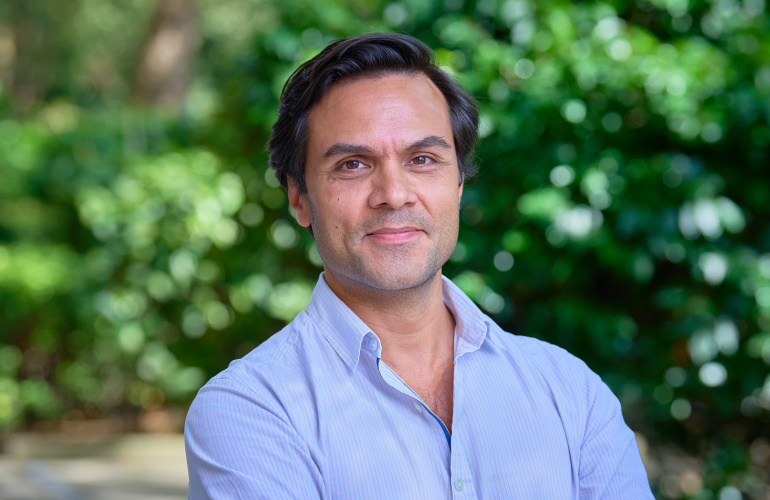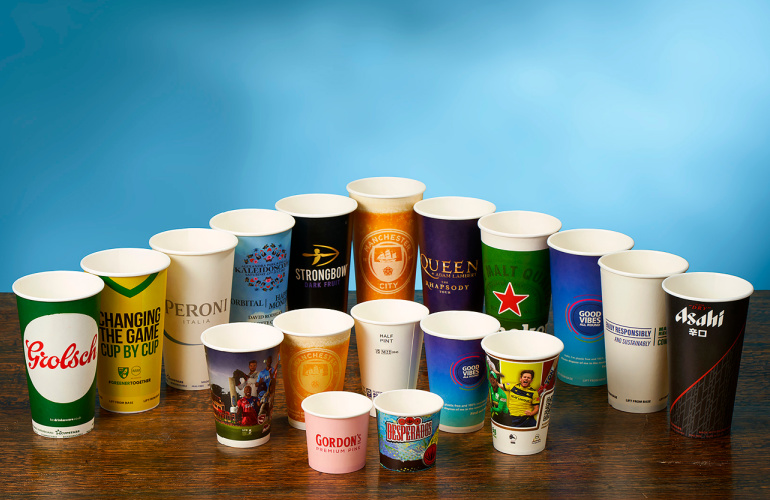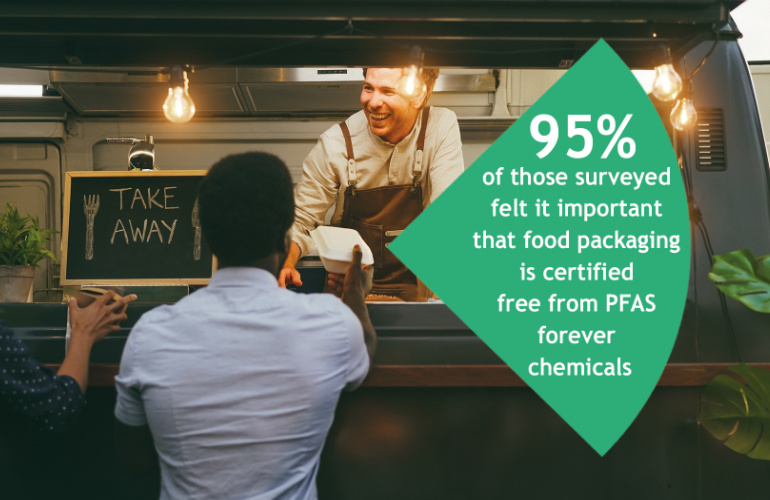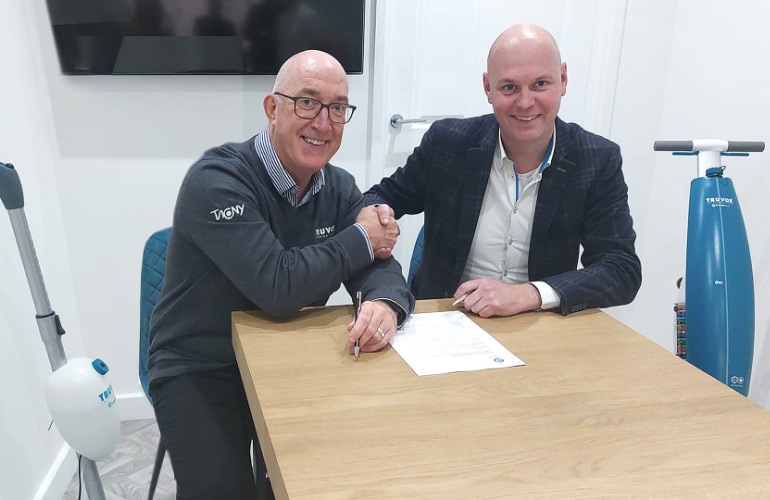
Packaging with integrity – Seal Packaging launches new sustainable solutions

Luton-based Seal Packaging (Seal) has been acquired by experienced industry professionals Kevin Curran, Sally Gabbitas, and Kevin Prosser, as a vehicle to launch new ranges of innovative and sustainable packaging. With the tag-line ‘Packaging with integrity’ and a new website – www.sealpackaging.com, Seal is aiming to help its clients achieve net zero by ensuring the sustainability of its products’ raw materials, usage, and end-of-life, to protect the environment.
Several new innovative products are currently being launched, including: the first UKCA marked plastic-free paper cups; the Itsnotpaper bag range, a viable and sustainable alternative to traditional paper bags; and Compostabowl™, the brainchild of Kevin Curran, who has been a thought-leader and leading figure in the packaging industry for over 30 years.
“The environment is one of our core concerns and – working closely with a tried and trusted range of national and global suppliers – we are striving to develop and introduce new and eye-catching products that reflect ever-changing market trends and today’s stringent environmental requirements,” says Seal Packaging Director Sally Gabbitas.
UKCA marked plastic-free paper cups
Seal is introducing the first ever UKCA mark registered* paper cups to market, made in the UK for the brewery, and leisure industries, and offering the best enviro-credentials in the category.
“If people really care about the environment, this certified home-compostable and recyclable, repulpable, biodegradable, free from PLA and PE range of paper cups is a must,” says Sally Gabbitas.
Available in 10oz, 20oz and 22oz sizes plus a 4oz size for tasting, the cups have the prestigious Flustix No Plastic certification by Din Certco, and are the only UKCA mark registered paper cups for 10oz and 20oz.
“We all know that plastic is no longer seen as the answer, and anyway, paper delivers so many advantages beyond its sustainability credentials, as it can easily be printed across the whole surface in CMYK or spot colours,” says Sally Gabbitas. “So, you can actually put a whole poster into consumers’ hands or run competitions which link through to your current digital campaign with QR codes.”
Itsnotpaper bags
Itsnotpaper bags look, feel and handle like paper, but not one tree has been chopped down to make them. They are set to revolutionise the UK and world bag markets over the next few years.
“By using renewable sources such as agri-fibres as a raw material, instead of wood, the production of Itsnotpaper bags have up to 38 per cent less carbon emissions than conventional paper bags,” says Sally Gabbitas. “They contribute to a reduction in deforestation, and the material used has so far saved more than one million trees.
“The agri-fibres we use to make the material for Itsnotpaper bags are abundant and renewable. By turning what would otherwise be waste into a valuable resource, we are supporting communities in India by paying farmers for something they previously burnt, causing air and land pollution.”
Itsnotpaper bags are made in the UK, and the material used to make them has been through a rigorous Life Cycle Assessment to ensure that it is sustainable, end-to-end. They can be printed just like conventional paper bags and behave in the same way, with the same flexibility and wet-strength.
“Working closely with envoPAP – the UK’s first certified B Corporation company in the paper and packaging industry – and a leading UK-based bag specialist, we are proud to have developed Itsnotpaper bags,” says Sally Gabbitas. “This is the first time in my career that I’ve been able to promote a product which is certified marine degradable! Add to that the fact that Itsnotpaper bags are 100 per cent recyclable and can be recycled in conventional paper recycling streams, and that we also have 100 per cent compostable certification, makes these innovative bags a genuine sustainable alternative to traditional paper bags.”
Compostabowl™
After nearly three years in development, Seal Packaging launched Compostabowl™ earlier this year. “Compostabowl™ combines a high-quality bagasse bowl with an optional high-clarity lid made from 100 per cent recycled and 100 per cent recyclable rPET, giving maximum presentation with superb environmental credentials,” says Sally Gabbitas. “Further enhancing its environmental appeal, Compostabowl™ is certified to TÜV Austria (S0086) – the highest standard for home compostability.”
Compostabowl™ adds an eco-friendly feel to any foodservice offering and its ergonomic design make it both easy to hold for food on the go, while enhancing presentation of shelf-ready product.
And more…
Continuing the sustainable packaging theme, Seal also offers a wide range of Kraft food containers plus plastic-free cutlery made from paper or bagasse. In addition, the company is working closely with a market leading and boutique carton board producer which produces a variety of products for Seal.
“Being ‘environmentally friendly’ is not entirely straightforward,” says Sally Gabbitas. “We must consider: how materials are sourced; how they are transported; what alternatives may be available; can the final product be recycled?; and can the final product be composted? But can we go further? If a product can be composted, how likely is that to happen? In theory, this may be the most environmental approach, but if the infrastructure is not available then perhaps a recyclable option is more sustainable.
“Our role is to advise and help our clients navigate the vast number of options to work together on the right packaging approach that is affordable, practical, ethical and sustainable.
“Less is very often more, and that’s why we are proud of our slogan: ‘SEAL – Packaging with integrity’.”
See Seal Packaging at the Responsible Packaging Expo
See Seal Packaging’s innovative and sustainable packaging solutions by visiting Stand 576 at the Responsible Packaging Expo at ExCel in London on 19th and 20th of October.
*The UKCA (UK Conformity Assessed) marking came into effect on 1 January 2021, and is a new UK product marking that is used for goods being placed on the market in Great Britain (England, Wales and Scotland). It covers most goods which previously required the CE marking, known as ‘new approach’ goods.

